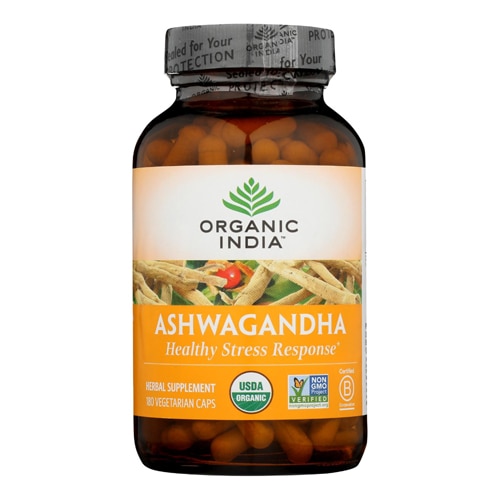[vc_row][vc_column][vc_column_text]We’re supposed to feel upbeat in the
summer, right? The sun’s out. The skies are clear. The outdoors beckons us.
But even though we normally associate it with the often gloomier fall and winter months, a form of depression known as
seasonal affective disorder (SDA) can strike in the summer, too.
So, why does SAD happen during the summer months? How do you know you’ve got summer SAD? And how do you cope with summer SAD if you do have it or perhaps even prevent it?

What is seasonal affective disorder?
Mood shifts frequently happen when seasons begin or end. Sometimes, we may just feeling “down” or “blue,”
according to the National Institute of Mental Health. But if these mood shifts are serious and affect someone’s thoughts, feelings and daily activities, that person could be experiencing SAD.
Most of the time, SAD begins in the late fall or early winter, with symptoms lasting four to five months, and goes away in the spring and summer, the institute says. Less common are cases of springtime or summertime SAD.
About 5 percent of American adults experience extreme bouts of SAD.
What causes summer depression?
Several things can help trigger summer depression.
According to the University of Michigan, they include:
Schedule changes. Some people might take on more work while colleagues are on summer vacation, leading to added stress. Others, like teachers, might hold seasonal jobs that die down in the summer. A lack of structure during this time off might affect a person’s mental health.
Vacations. Travel disruptions like the ones seen during Americans’ vacations during the summer 2022 can elevate stress and anxiety. So can the mere act of planning or spending money on a trip. Someone’s stress level might even rise when they’re around certain relatives during the summer.
Daylight patterns. Longer periods of sunlight during the summer might throw off a person’s sleep schedule. A lack of sleep can be a factor in summer depression.
Socializing. At summertime gatherings, great quantities of alcohol might be flowing. Guzzling too many beers or other alcoholic drinks at a summer event can contribute to feelings of depression.
Kelly Rohan, a psychology professor at the University of Vermont,
told The New York Times in 2021 that heat and humidity might play a role in summer depression. As the newspaper explains, some of the same compounds in the body that help regulate mood, such as norepinephrine, serotonin and dopamine, have been tied to regulation of body temperature.
Another possibility: Summertime pollen can spark changes in the body that might help promote depression.
“There is also more peer pressure to be happy and outdoors in the summer. And people seem more accommodating and accepting of people who feel depressed in the winter,”
Hartford HealthCare notes.
For some folks, summertime might come with high hopes that end up being dashed, causing a big letdown.
“For some people, it’s very common to wait and wait and wait for summer, but when summer arrives, they realize they had this big fantasy around it,” clinical psychologist Guy Winch
told SELF magazine. “They think, ‘When summer comes, I’ll do all these things and have all these experiences!’ and when that doesn’t materialize, they feel worse.”
What are the symptoms of summer depression?
The National Institute of Mental Health says symptoms of summer depression include:
- Insomnia
- Poor appetite
- Weight loss
- Restlessness
- Agitation
- Anxiety
- Outbursts of violent behavior
Some of these symptoms overlap with cases of SAD that occur in the fall or winter.
“Summer SAD is more of an agitated depression,” Dr. Norman Rosenthal, a clinical professor of psychiatry at the Georgetown University School of Medicine, told The New York Times.
How do you cope with summer depression?
Treatments for summer depression include:
- Undergoing “talk therapy”
- Taking prescribed antidepressants
- Staying in air-conditioned places and out of the heat and humidity
- Enjoying a cool shower or bath
Can you prevent summer depression?
While you might not be able to prevent an initial occurrence of summer depression, you can take steps to minimize its effects. These include:
- Eating a vitamin- and mineral-rich diet with plenty of nutrients from fruits and vegetables.
- Relieving anxiety and stress by engaging in regular exercise.
- Getting a proper amount of sleep (typically seven to nine hours a day for an adult).
- Sticking to a routine. Waking up at the same time every day and eating meals at scheduled times are among the moves you can make to feel less chaotic and more in control of your life.
- Not isolating yourself. If you’ve got summer depression, you may simply want to be alone. But to help alleviate SAD, you should try to hang out with relatives and friends, and immerse yourself in summertime activities that bring you joy.
[/vc_column_text][/vc_column][/vc_row][vc_row][vc_column][vc_text_separator title="Mood Support Solutions" border_width="2"][vc_row_inner equal_height="yes" content_placement="middle" gap="15"][vc_column_inner width="1/5"][/vc_column_inner][vc_column_inner width="1/5"][vc_single_image image="161349" img_size="full" alignment="center" onclick="custom_link" img_link_target="_blank" css=".vc_custom_1658689813456{padding-right: 7% !important;padding-left: 7% !important;}" link="https://www.vitacost.com/natures-way-mood-lift"][/vc_column_inner][vc_column_inner width="1/5"][vc_single_image image="161350" img_size="full" alignment="center" onclick="custom_link" img_link_target="_blank" css=".vc_custom_1658689830458{padding-right: 7% !important;padding-left: 7% !important;}" link="https://www.vitacost.com/solaray-briteside-joy-boost-formula"][/vc_column_inner][vc_column_inner width="1/5"][vc_single_image image="161348" img_size="full" alignment="center" onclick="custom_link" img_link_target="_blank" css=".vc_custom_1658689850008{padding-right: 7% !important;padding-left: 7% !important;}" link="https://www.vitacost.com/himalaya-hello-joy"][/vc_column_inner][vc_column_inner width="1/5"][/vc_column_inner][/vc_row_inner][/vc_column][/vc_row]




